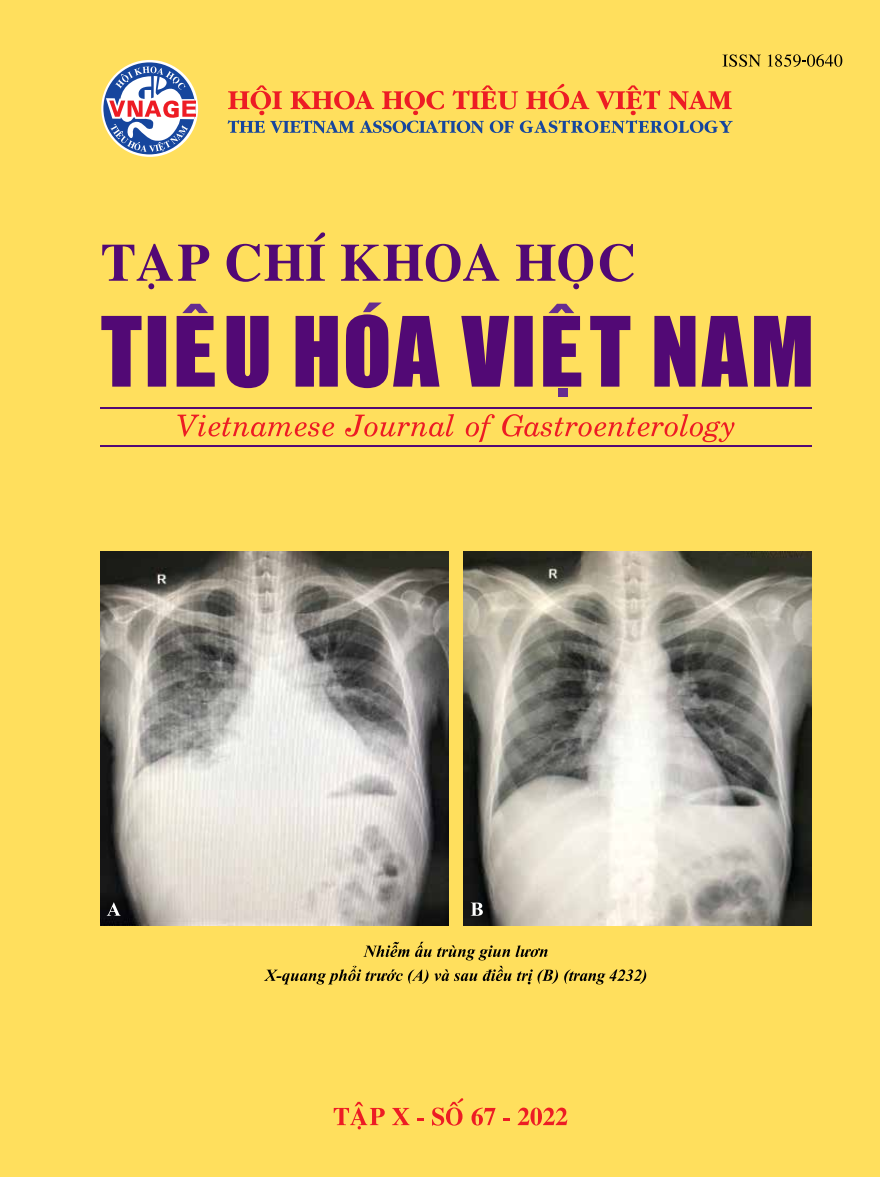Quan điểm mới về điều trị viêm gan vi rút C mãn tính ở bệnh nhân bệnh thận mãn tính
Tóm tắt
Nhiễm vi rút viêm gan C (HCV: Hepatitis C Virus) làm tăng tỷ lệ và diễn tiến của bệnh thận mãn (CKD: Chronic Kidney Disease) cùng như tăng tỷ lệ tử vong của bệnh nhân bệnh thận mãn và bệnh nhân ghép thận. Bệnh nhân bệnh thận mãn, chạy thận nhân tạo lâu ngày cũng dễ nhiễm HCV. Tỷ lệ lưu hành vi rút viêm gan C cao nhiều ở bệnh nhân bệnh thận mãn tính. Tỷ lệ này từ 4 - 9% ở hầu hết các nước có tỷ lệ thu nhập cao, nhưng đặc biệt cao ở các nước Trung Đông, Bắc và các cận Sahara châu Phi, châu Á và Đông Âu. Tỷ lệ cũng tăng ở bệnh nhân lọc thận lâu dài, nam giới đái tháo đường, đồng nhiễm vi rút viêm gan B (HBV: Hepatitis B Virus) hay vi rút gây suy giảm miễn dịch mắc phải (HIV: Human Immunodeficiency Virus). Điều trị HCV mang lại lợi ích sống còn, giảm nguy cơ diễn tiến CKD, giảm tỷ lệ đái tháo đường và cải thiện mức lọc cầu thận (GFR). Thuốc kháng vi rút trực tiếp (DAAs) đã làm cuộc cách mạng trong điều trị viêm gan C, loại bỏ hoàn toàn vi rút với tỷ lệ đạt được 90 - 100%. Vài loại thuốc DAAs dùng được cho tất cả các kiểu gen, dung nạp tốt, an toàn và hiệu quả cho bệnh nhân bệnh thận mãn 90 - 95%. Đây cũng là cuộc cách mạng trong điều trị cho bệnh nhân HCV với CKD, đồng thời mở ra triển vọng có thể dùng tái ghép có nhiễm HCV để cấy ghép.
Tài liệu tham khảo
1. World Health Organization, Global Hepatitis
Programme. Guidelines for the care and treatment
of persons diagnosed with chronic hepatitis C virus
infection. [Internet]. 2018 [cited 2019 Nov 2].
Available from: http://www.ncbi.nlm.nih.gov/books/
NBK531733.
2. Mohanty A, Salameh S, Butt AA. Impact of direct
acting antiviral agent therapy upon extrahepatic
manifestations of hepatitis C virus infection. Curr
HIV/AIDS Rep. 2019;16(5):389–394.
3. Muhammad Umair Khana et al.Expert Review of
Gastroenterology & Hepatology -2020.
4. Pol S, Parlati L, Jadoul M. Hepatitis C virus and the
kidney. Nat Rev Nephrol. 2019;15(2):73–86.
5. Kidney Disease: Improving Global Outcomes
(KDIGO) Hepatitis C Work Group. KDIGO 2018
clinical practice guideline for the prevention,
diagnosis, evaluation, and treatment of hepatitis
C in chronic kidney disease. Kidney Int Suppl.
2018;8(3):91–165.
6. Lai T-S, Lee M-H, Yang H-I, et al. Hepatitis C viral
load, genotype, and increased risk of developing
end-stage renal disease: REVEAL-HCV study: lai
et al. Hepatology. 2017;66(3):784–793.
7. Lazo M, Nwankwo C, Daya NR, et al. Confluence
of epidemics of hepatitis C, diabetes, obesity,
and chronic kidney disease in the United
States Population.Clin Gastroenterol Hepatol.
2017;15:1957–1964.e7.
8. Heo N-Y, Mannalithara A, Kim D, et al. Longterm patient and graft survival of kidney
transplant recipients with Hepatitis C virus
infection in the United States. Transplantation.
2018;102(3):454–460.
9. Park H, Chen C, Wang W, et al. Chronic hepatitis
C virus (HCV) increases the risk of chronic kidney
disease (CKD) while effective HCV treatment
decreases the incidence of CKD. Hepatology.
2018;67(2):492–504.
10. Jacobson IM, Lawitz E, Gane EJ, et al. Efficacy of
8 weeks of sofosbuvir, velpatasvir, and voxilaprevir
in patients with chronic HCV infection: 2
Phase 3 randomized trials. Gastroenterology.
2017;153:113–122.
11. Li M, Chen J, Fang Z, et al. Sofosbuvir-based
regimen is safe and effective for hepatitis C
infected patients with stage 4–5 chronic kidney
disease: a systematic review and meta-analysis.
Virol J. 2019;16(1):34. doi: 10.1186/s12985-019-
1140-xi.12. Gane E, Lawitz E, Pugatch D, et al.
Glecaprevir and pibrentasvir in patients with
HCV and severe renal impairment. N Engl
J Med. 2017;377:1448–1455. Clinical trial
demonstrating efficacy and safety of once-daily
grazoprevir and elbasvir for HCV patients with
stage 4-5 chronic kidney disease.
13. Sergio M. Borgia et al. Sofosbuvir/velpatasvir for
12 weeks in hepatitis C virus-infected patients with
end-stage renal disease undergoing dialysis . Journal
of Hepatology 2019 vol. 71 j 660–665.
14. Fabrizio Fabrizi et al. An Updated View on the
Antiviral Therapy of Hepatitis C in Chronic Kidney
Disease. Pathogens 2021, 10, 1381. https://doi.
org/10.3390/pathogens10111381.
15. www.HCVGuidance.org on October 30,2021.









